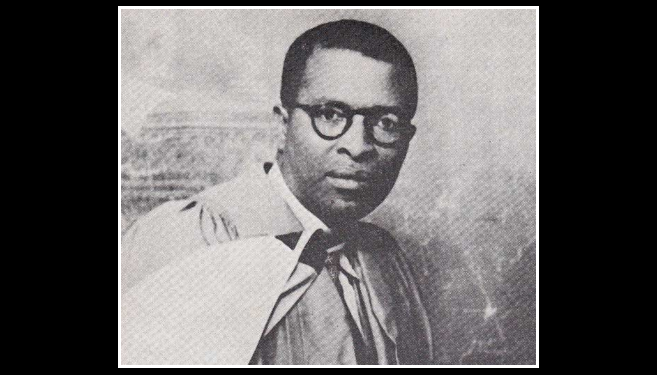 Webinar commemorates the 75th anniversary of the death of Dr BW Vilakazi.
Webinar commemorates the 75th anniversary of the death of Dr BW Vilakazi.75th Anniversary of the Death of Legendary Linguist Dr BW Vilakazi Remembered
The University Language Planning and Development Office (ULPDO), in partnership with the Usiba Writers’ Guild, hosted a webinar to commemorate the 75th anniversary of the passing of legendary isiZulu poet, novelist and linguist Dr Benedict Wallet Vilakazi.
Deputy Dean of Undergraduate Studies in the Faculty of Humanities, Development and Social Sciences, Professor Sihawukele Ngubane, said the webinar aimed to acknowledge and honour the works of Vilakazi, who was born on 6 January 1906 in Groutville, Stanger, during the Bhambatha War.
He was the first Black South African to attain a doctoral degree and lecture isiZulu at the University of Witwatersrand (Wits).
Ngubane remarked on how the ULPDO hosts a literature competition every year for the best isiZulu and English writers to pay homage to Vilakazi who died on 26 October 1947 and was buried at the Mariannhill Monastery in Pinetown.
The keynote address titled: Live Large, Die Young: Marking of the Modern Mind, delivered by Wits University’s Professor in African Languages Bonisiwe Zungu, evaluated Vilakazi as a pioneer who was at the helm of the intellectualisation of isiZulu as an African language in the 1930s.
Zungu examined how Vilakazi’s identity with the province of his birth could be seen in his work through the description of the KwaZulu-Natal landscape using sight, sound, smell, taste, the use of the names of people and geographical landscapes to map the province, and the ancestral references that link Vilakazi to the past and the land.
Defining romanticism as a reaction against the industrial revolution and urbanisation, enlightenment and oppression, Zungu drew similarities between Vilakazi’s work KwaDedangendlale to that of Tintern Abbey’s Wordsworth and Inqomfi to that of Shelley’s Ode to a Nightingale.
She highlighted Vilakazi’s first work titled, Inkondla kaZulu, which drew upon his experience of the feeling of emasculation, racism and loneliness at Wits. Zungu noted how Vilakazi used nostalgia to romanticise poetry, in particular death (as someone who knew that he was going to die young), and his life at the institution through Usangithanda and Wo Leli Khehla!
Focusing on the values of romanticism, Zungu alluded to how it encompasses the power of nature, nostalgia, mystical fascination, emotions and passion, going into a trance and having a death wish. Giving a summary of his life she examined his poem Imfundo Ephakeme which identified Vilakazi as an individual who faced many challenges but was ahead of his time, having set the standard for Black academics and poets in the isiZulu language, achieving all that he could at a young age before his death.
Director of Isichazamazwi SesiZulu Dr Nakanjani Sibiya praised the event for celebrating Vilakazi’s life and commented on his works as being timeless classics appealing to every person whether young or old and every situation one might be going through. Analysing his style of writing he said it was simple but carried powerful messages.
Programme Director and ULPDO Language Practitioner Mr Njabulo Manyoni shared some poignant facts about Vilakazi including that he was a struggle icon during the apartheid era.
A Q&A session was conducted. Questions included what could be done to promote the culture of reading and writing and the resuscitation of literature in Basic Education with the advent of technology. Zungu’s answer echoed the importance of vision and knowledge construction for generations to come, while Sibiya implored academics to develop a political will and commitment to teach students more of the country’s own history.
In his closing remarks, Acting Director of the ULPDO Mr Khumbulani Mngadi thanked stakeholders, speakers and those in attendance.
He acknowledged Zungu for her thought-provoking keynote address and said: ‘I hope this inspires everyone to read more books by this legend and share them with your kids… because at UKZN we say language matters.’
- Mariannhill Monastery hosted an event on 25 November to commemorate Vilakazi’s life.
Words: Hlengiwe Khwela
Photograph: Supplied



